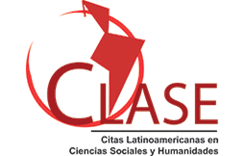GOVERNMENT ENCOURAGING SOCIAL AND ECONOMIC DEVELOPMENT THROUGH BY MIXED CAPITAL BANK: STIMULATING SOCIAL ENTREPRENEURSHIP
DOI:
https://doi.org/10.54399/rbgdr.v18i2.5408Palabras clave:
Regional Development.Sustainability. Social impact. Social innovation. Corporate governance.Resumen
The analysis of government actions promoted by the state is present in several surveys. However, there are few contributions that analyze the social benefits of activities developed by public institutions of mixed capital, that reconcile social and economic aspects. This research aims to analyze the social effectiveness of a corporate social responsibility action of a mixed capital financial institution. Documentary research was developed in 11,377 projects, combined with the application of a questionnaire. It was identified that corporate social responsibility actions should prioritize social impact, positioning financial return and reputation as secondary aspects, in order to guarantee the social intentions of the institution promoting the activity, otherwise it will only be addressed how a investment for marketing strategies. Projects that seek to develop economic activities in underserved locations provide significant and lasting social impacts. A significant benefit of Corporate Social Responsibility is to empower people to be social entrepreneurs, and to encourage the dissemination of the culture of social entrepreneurship, thus enhancing the occurrence of more projects that serve the less favored economic classes.
Descargas
Métricas
Citas
AGUIAR, T. R.S.; SOUZA FREIRE, F. Shifts in modes of governance and sustainable development in the Brazilian oil sector. European Management Journal, v. 35, n. 5, p. 701-710, 2017.
AMINI, C.; DAL BIANCO, S. Corporate social responsibility and Latin American firm performance. Corporate Governance: The International Journal of Business in Society, v. 17, n. 3, p. 403-445, 2017.
BARNETT, M. L. One voice, but whose voice? Exploring what drives trade association activity. Business & Society, v. 52, n. 2, p. 213-244, 2013.
BARNETT, M. L. The business case for corporate social responsibility: A critique and an indirect path forward. Business & Society, v. 58, n. 1, p. 167-190, 2019.
BASS, A. E.; MILOSEVIC, I. The ethnographic method in CSR research: The role and importance of methodological fit. Business & Society, v. 57, n. 1, p. 174-215, 2018.
BIKSE, V.; RIVZA, B.; RIEMERE, I. The social entrepreneur as a promoter of social advancement. Procedia-Social and Behavioral Sciences, v. 185, n. 13, p. 469-478, 2015.
BOZHIKIN, I.; MACKE, J.; DA COSTA, L. F. The role of government and key non-state actors in social entrepreneurship: A systematic literature review. Journal of cleaner production, v. 226, p. 730-747, 2019.
BRÄNDLE, L.; ELISABETH S.; BERGER, E. S.; GOLLA, S.; KUCKERTZ, A. I am what I am-How nascent entrepreneurs' social identity affects their entrepreneurial self-efficacy. Journal of Business Venturing Insights, v. 9, p. 17-23, 2018.
CAMPA, D.; ZIJLMANS, E. W. A. Corporate social responsibility recognition and support for the arts: Evidence from European financial institutions. European management journal, v. 37, n. 6, p. 818-827, 2019.
CARBERRY, E. J.; BHARATI, P.; LEVY, D. L.; CHAUDHURY, A. Social movements as catalysts for corporate social innovation: Environmental activism and the adoption of green information systems. Business & Society, v. 58, n. 5, p. 1083-1127, 2019.
CHANDRA, Y.; SHANG, L. Social entrepreneurship interventions in the HIV/AIDS sector: A social entrepreneurship–social work perspective. International Social Work, p. 0020872818807735, https://doi.org/10.1177/0020872818807735, 2019.
CHUN, R.; ARGANDOÑA, A.; CHOIRAT, C.; SIEGEL, D. S. Corporate Reputation: Being Good and Looking Good. Business & Society, v. 58, n. 6, p. 1132-1142, 2019.
CONFENTE, I.; SICILIANO, G. G.; GAUDENZI, B.; EICKHOFF, M. Effects of data breaches from user-generated content: A corporate reputation analysis. European Management Journal, v. 37, n. 4, p. 492-504, 2019.
CRANE, A. HENRIQUES, I.; HUSTED, B. W.; MATTEN, D. Measuring corporate social responsibility and impact: Enhancing quantitative research design and methods in business and society research. Business & Society, v. 56, n. 6, p. 787–795, 2017.
DE GRAAF, F. J.; STOELHORST, J. W. The role of governance in corporate social responsibility: Lessons from Dutch finance. Business & Society, v. 52, n. 2, p. 282-317, 2013.
DELL'ATTI, S.; IANNUZZI, A. P. Reputation, Reputational Crisis and Corporate Social Responsibility of Banks: Measurement and Relationships. In: DELL'ATTI, S.; TROTTA, A. Managing Reputation in The Banking Industry. Springer: Cham, 2016. p. 33-55.
DINCER, H.; CELIK, I. E.; YILMAZ, R.; HACIOGLU, Ü. The financial implications of corporate social responsibility in the banking sector. In: HACIOGLU, U.; DINCER, H. Managerial Issues in Finance and Banking. Springer: Cham, 2014. p. 197-207.
ESTEBAN-SANCHEZ, P.; DE LA CUESTA-GONZALEZ, M.; PAREDES-GAZQUEZ, J. D. Corporate social performance and its relation with corporate financial performance: International evidence in the banking industry. Journal of cleaner production, v. 162, p. 1102-1110, 2017.
FAUCHART, E.; GRUBER, M. Darwinians, communitarians, and missionaries: The role of founder identity in entrepreneurship. Academy of management journal, v. 54, n. 5, p. 935-957, 2011.
GALI, N.; HAJJAR, D.; JAMALI, I. The corporate governance and social responsibility nexus in the Lebanese banking industry. Corporate Governance, v. 16, n. 3, p. 609-638, 2016.
GARDBERG, N. A.; ZYGLIDOPOULOS, S. C.; SYMEOU, P. C.; SCHEPERS, D. H. The impact of corporate philanthropy on reputation for corporate social performance. Business & society, v. 58, n. 6, p. 1177-1208, 2019.
GATZERT, N. The impact of corporate reputation and reputation damaging events on financial performance: Empirical evidence from the literature. European Management Journal, v. 33, n. 6, p. 485-499, 2015.
GOSS, A.; ROBERTS, G. S. The impact of corporate social responsibility on the cost of bank loans. Journal of Banking & Finance, v. 35, n. 7, p. 1794-1810, 2011.
GOYAL, P.; RAHMAN, Z.; KAZMI, A. A. Corporate sustainability performance and firm performance research. Management Decision, v. 51, n. 2, p. 361-379, 2013.
GRIFFIN, J. J.; PRAKASH, A. Corporate responsibility: Initiatives and mechanisms. Business & Society, v. 53, n. 4, p. 465-482, 2014.
HUNOLDT, M.; OERTEL, S.; GALANDER, A. Being responsible: How managers aim to implement corporate social responsibility. Business & Society, p. 1-42, 2018.
JOHN, K.; DE MASI, S.; PACI, A. Corporate governance in banks. Corporate Governance: An International Review, v. 24, n. 3, p. 303-321, 2016.
KIRKPATRICK, G. The corporate governance lessons from the financial crisis. Journal: Financial Market Trends, v. 2009, n. 1, p. 61-87, 2009.
KÜHN, A. L.; STIGLBAUER, M.; FIFKA, M. S. Contents and determinants of corporate social responsibility website reporting in Sub-Saharan Africa: A seven-country study. Business & Society, v. 57, n. 3, p. 437-480, 2018.
KURATKO, D. F.; MCMULLEN, J. S.; HORNSBY, J. S.; JACKSON, C. Is your organization conducive to the continuous creation of social value? Toward a social corporate entrepreneurship scale. Business Horizons, v. 60, n. 3, p. 271-283, 2017.
LAFUENTE GONZÁLEZ, E. M.; VAILLANT, Y.; VENDRELL HERRERO, F. Conformance and performance roles of bank boards: The connection between non-performing loans and non-performing directorships. European Management Journal, v. 37, n. 5, p. 664-673, 2019.
MAYOH, J.; ONWUEGBUZIE, A. J. Toward a conceptualization of mixed methods phenomenological research. Journal of mixed methods research, v. 9, n. 1, p. 91-107, 2015.
MOTTIAR, Z.; BOLUK, K.; KLINE, C. The roles of social entrepreneurs in rural destination development. Annals of Tourism Research, v. 68, p. 77-88, 2018.
NANDONDE, F. A.; SACHS, P. R. Commercial bank corporate social responsibility practices in Tanzania. In: ALUCHNA, M.; IDOWN, S. O. The Dynamics of Corporate Social Responsibility. Springer; Cham, 2017. p. 167-185.
NASH, K.; CORNER, J. Strategic impact documentary: Contexts of production and social intervention. European Journal of communication, v. 31, n. 3, p. 227-242, 2016.
ORLITZKY, M.; SIEGEL, D. S.; WALDMAN, D. A. Strategic corporate social responsibility and environmental sustainability. Business & society, v. 50, n. 1, p. 6-27, 2011.
ORTBAL, K.; FRAZZETTE, N.; MEHTA, K. Constructed Stakeholder Personas: an educational tool for social entrepreneurs. Procedia engineering, v. 159, p. 230-248, 2016.
OSAGIE, E. R.; WESSELINK, R.; BLOK, V.; MULDER, M. Contextualizing individual competencies for managing the corporate social responsibility adaptation process: The apparent influence of the business case logic. Business & Society, v. 58, n. 2, p. 369-403, 2019.
PÉREZ-CORNEJO, C.; DE QUEVEDO-PUENTE, E.; DELGADO-GARCÍA, J. B. How to manage corporate reputation? The effect of enterprise risk management systems and audit committees on corporate reputation. European Management Journal, v. 37, n. 4, p. 505-515, 2019.
PETERS, S.; MILLER, M.; KUSYK, S. How relevant is corporate governance and corporate social responsibility in emerging markets?. Corporate Governance: The international journal of business in society, v. 11, n. 4, p.429-445, 2011.
RAWHOUSER, H.; CUMMINGS, M.; NEWBERT, S. L. Social impact measurement: Current approaches and future directions for social entrepreneurship research. Entrepreneurship Theory and Practice, v. 43, n. 1, p. 82-115, 2019.
ROSE, C. Firm performance and comply or explain disclosure in corporate governance. European Management Journal, v. 34, n. 3, p. 202-222, 2016.
ROSSOUW, G. J. Business ethics and corporate governance in Africa. Business & Society, v. 44, n. 1, p. 94-106, 2005.
SAMPIERI, R. H.; COLLADO C. F.; LUCIO, P. B. 2006. Research Methodology. São Paulo: McGraw-Hill, 2006.
SAMY, M.; ODEMILIN, G.; BAMPTON, R. Corporate social responsibility: a strategy for sustainable business success. An analysis of 20 selected British companies. Corporate Governance: The international journal of business in society, v. 10, n. 2, p. 203-217, 2010.
SHEN, C. H.; WU, M. W.; CHEN, T. H.; FANG, H. To engage or not to engage in corporate social responsibility: Empirical evidence from global banking sector. Economic Modelling, v. 55, p. 207-225, 2016.
SIEGER, P.; GRUBER, M.; FAUCHART, E.; ZELLWEGER, T. Measuring the social identity of entrepreneurs: Scale development and international validation. Journal of Business Venturing, v. 31, n. 5, p. 542-572, 2016.
TROTTA, A.; IANNUZZI, A.; CAVALLARO, G.; DELL'ATTI, S. Banking reputation and CSR: a stakeholder value approach. In: NAPLES FORUM ON SERVICE – Service Dominant Logic, Network and System Theory and Service Science: Integrating Three Perspectives for a New Service Agenda. 2011, Naples. Anais"¦ Naples, Italy: Giannini, 2011.
VAN DEN HEUVEL, G.; SOETERS, J.; GÖSSLING, T. Global business, global responsibilities: Corporate social responsibility orientations within a multinational bank. Business & Society, v. 53, n. 3, p. 378-413, 2014.
WITTEN, I. H., FRANK, E.; HALL M.; PAL C. Data Mining: Practical Machine Learning Tools and Techniques. Burlington, California: Morgan Kaufmann, 2016.
WU, M. W.; SHEN, C. H.; CHEN, T. H. Application of multi-level matching between financial performance and corporate social responsibility in the banking industry. Review of Quantitative Finance and Accounting, v. 49, n. 1, p. 29-63, 2017.
YIN, J. Institutional drivers for corporate social responsibility in an emerging economy: A mixed-method study of Chinese business executives. Business & society, v. 56, n. 5, p. 672-704, 2017.
Descargas
Publicado
Cómo citar
Número
Sección
Licencia
Derechos de autor 2022 Revista Brasileira de Gestão e Desenvolvimento Regional

Esta obra está bajo una licencia internacional Creative Commons Atribución-NoComercial 4.0.
Os autores que tiverem seus trabalhos aceitos e publicados na Revista Brasileira de Gestão e Desenvolvimento Regional estarão sujeitos a política de direitos autorais CC https://creativecommons.org/licenses/by/4.0/.
Em caso de aceite do artigo para publicação, os direitos autorais são automaticamente cedidos para a Revista Brasileira de Gestão e Desenvolvimento Regional.


















